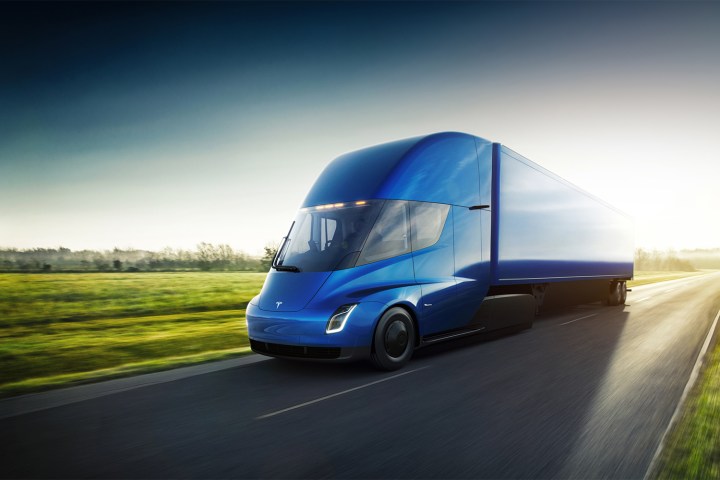With Tesla Motors and CEO Elon Musk caught up in a bit of a crazy media whirlwind from launch issues with the Model 3, it seems such troubles have market analysts and investors convinced that the company’s next biggest prospect, the Tesla Semi, is dead.
Tesla didn’t mention the all-important Semi during its controversial first-quarter earnings statement, SeekingAlpha points out. Some investors and analysts consequently doubt in Tesla’s ability to deliver what it promised. Others believe Tesla is pulling a “smoke and mirrors effect” once again to try and raise more capital while hiding the truth behind a range of its internal problems. Musk alluded the Semi isn’t his priority at this point.
“I actually don’t know how many reservations we have for the Semi. About 2,000? Okay. I mean, we haven’t really tried to sell the Semi. It’s not like there’s like an ongoing sales effort, so sales – orders for Semi are like opportunistic, really companies approaching us. Yeah, it’s not something we really think about much,” he told CNBC’s Phil LeBeau.
A year ago, he envisioned taking on the trucking industry with the revolutionary all-electric-powered semi-truck. Tesla’s newest truck wouldn’t only say goodbye to diesel, but would solve many of the trucking industry’s problems in a transformative manner. But doubt and skepticism set in quite early.

From an industry standpoint, the Semi seemed a little bit too distant from the reality of actual big-rig trucking, an industry particularly sentimental to simplicity. Although initial orders by PepsiCo, Anheuser-Busch, Sysco, and UPS supposedly placed a total of 315 orders, with some from other companies establishing some confidence in the project, analysts still say it’s not enough.
Feeding the fire of uncertainty, trouble at the famed Silicon Valley, California EV startup first surfaced around the same time the Tesla Semi was announced, amid quality control and manufacturing issues with the Tesla Model 3, after missing initial sales targets due to “production issues.” Rubbing salt in the wound, a recent lawsuit surfaced from another EV startup called Nikola Motor, who claims that Tesla violated a number of its patents with its Semi concept.
Change, especially when geared toward full electrification over the tried, tested, and true traditional diesel motor, is incredibly hard to implement. This is extra difficult for the trucking industry, which is heavily dependent on simplicity and ease of maintenance and a highly developed fueling infrastructure. In comparison to traditional diesel-powered trucks of today, an EV truck would simply be too costly, too complex for maintenance, and charging infrastructure still pales significantly to diesel fueling infrastructure.
Altogether, it may be that although the Tesla Semi succeeded in scoring some investment funds, it was too optimistic and out of touch with trucking reality. And as a result, for now, the Tesla Semi remains to be a pipe dream.


